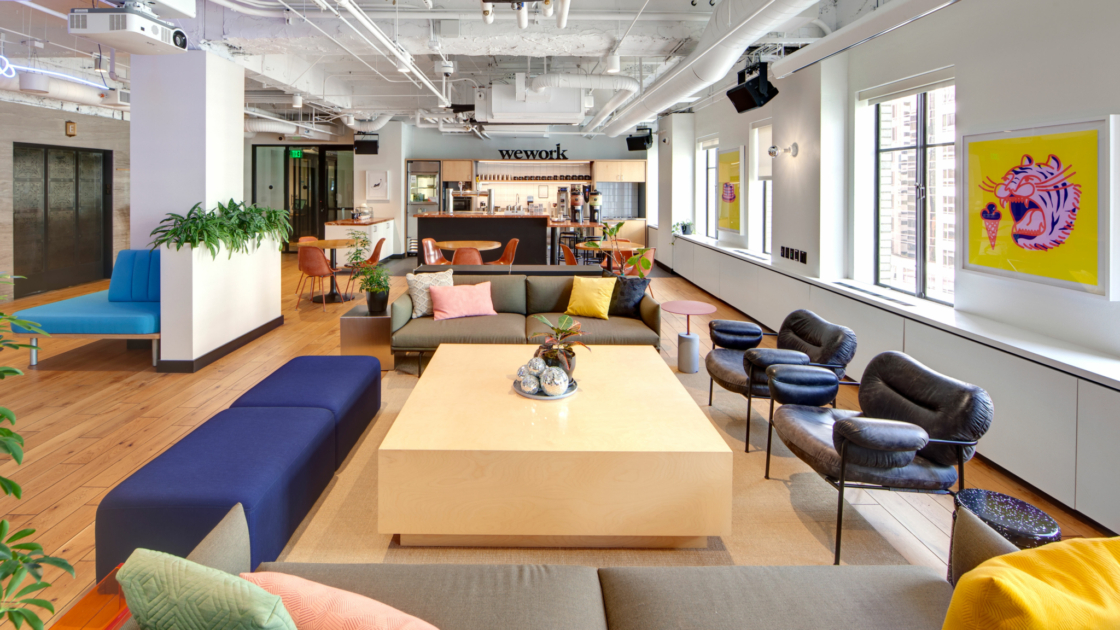Serial entrepreneur Gary Vaynerchuk knows that nearly every business leader and entrepreneur is sitting at their desk (or kitchen table, or patio) right now, thinking and strategising about how the events of the last year or so are going to impact the next year or two. He knows because he’s doing the same thing – and he’s got some ideas.
At the 2021 WeWork Innovation Summit this last April, Vaynerchuk, the chairman of VaynerX and the CEO of VaynerMedia, shared why practical optimism is the best way to approach disruption. (Watch it on demand here.) One of the leading global minds on what’s next in culture, relevance and the Internet, Vaynerchuk offered four ways leaders should be thinking about the future of their businesses – and their people – right now.
Reflect on the positives of remote work
Vaynerchuk acknowledged that he has always been an ‘everyone in the office’ type of guy. But he’s noticed a few positives that come from remote working, and he’ll incorporate them into the workplace going forward.
‘I do know I never want to be on a conference call again,’ he vowed. ‘When you’ve got 22 people on a call, there are no social cues. I’m someone who pushes envelopes, and you have to see people react to that. Video conferencing has brought 95 per cent of that to me, which is remarkable.’
Find new ways to break up the days
Since the pandemic, many business leaders realise just how important it is to prioritise the employee experience. Vaynerchuk shared a new form of working day entertainment he’s incorporated across his companies to infuse the day with a little fun: ‘digital escapism’, he calls it.
‘At 1:37 p.m. EST every day [timed for Vaynerchuk’s company ONE37pm], we do a company-wide break where I or someone else interviews someone interesting. It gives people half an hour to take a much-needed break from work,’ he said.
Be prepared to compete for employees
To borrow from property lingo, it’s an employee’s market right now – they’re holding more power because they’ve got more employment options, Vaynerchuk explained. He cited the newfound popularity of NFTs as an example.
‘With NFTs, regular people – a construction worker or a teacher – are able to be artists,’ he said. ‘Much like when influencers gave rise to influencer marketing, this is another huge option for humans not to do traditional work at companies. There will be an enormous amount of people with artistic talent who are now going to be able to benefit.’
For employers, that means stepping up their offerings to make working at their company more attractive. ‘Organisation leaders need to work out how to bring more value to people so that they rather work for your company than choose to work for themselves,’ he said. ‘It becomes the most important conversation for your survival.’
Create a tasting menu of job perks and benefits
Gone are the days when a salary bump or title change would satisfy everyone at the company. Vaynerchuk pointed out that workplace culture is more important than ever to employees, and that smart business leaders will listen and respond accordingly.
‘Every employee may have a different KPI,’ he said. ‘Someone might want a salary increase, someone else might want the flexibility of a work-life balance, another person may want options of where they can live.’
What’s more, as employees age and go through their career and life journeys, their needs may evolve. ‘The businesses and leaders who deploy empathy, compassion and sympathy – while still worrying about their P&L, because that’s real life – will survive,’ Vaynerchuk said.
The key for business leaders is to remove the words ‘this’ or ‘that’ from corporate vocabulary, and instead focus on ‘and’ and ‘both’.
‘We have to think in terms of a menu of options,’ he said. ‘You start doing many things, you start tasting them, and you drop what doesn’t taste as good. You’re left with a menu that fits you, the organisation you run and the people who work in it. The organisations that create a culture that delivers what every person is interested in, with a framework of options to feed them, will win.’
Watch this session on demand here.
Melanie Mannarino is a writer, editor, digital strategist and author of several books, including The (Almost) Zero-Waste Guide: 100+ Tips for Reducing Your Waste Without Changing Your Life.







